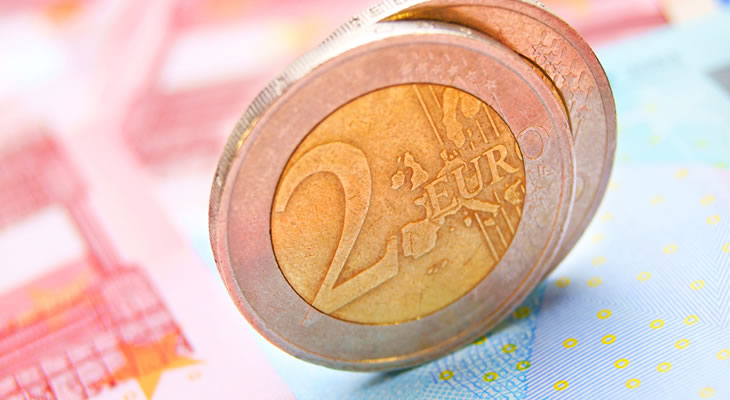The Pound Sterling to Euro (GBP/EUR) exchange rate rallied strongly as Thursday’s session progressed as more weak data from the Eurozone’s top three economies and mounting concerns over region wide deflation weighed heavily upon the single currency. The fears over deflation have increased pressure on the European Central Bank to introduce new measures to bolster growth, namely quantitative easing.
More losses are forecast for the Euro exchange rate as economists expect Friday’s Eurozone industrial production data to dissapoint.
Earlier the Pound Sterling to Euro (GBP/EUR) exchange rate softened on Thursday and was trading in a tight range as a house price report out of the UK weakened the Pound and inflation data out of Germany and France added to fears over low inflation in the single currency bloc.
Pound Sterling (GBP) Exchange Rate Softens
Sterling softened against a number of major peers after a report released by the Royal Institution of Chartered Surveyors (RICS) showed that its index of UK house prices showed that price growth slowed for a sixth consecutive month in November. The index fell from October’s figure of 20 to a reading of 13, the lowest figure recorded since May last year.
A separate index for the London area dropped from -33 to -40 the lowest number seen since 2010.
The fall in house prices suggests that measures taken by the Bank of England to cool the property market are working.
Earlier in the year BoE governor, Mark Carney warned that an overheating market was one of the biggest threats to the UK’s economic recovery.
Prices are forecast to stage a recovering over the coming months however, as a property tax overhaul announced last week by Chancellor George Osborne comes into effect and will cut the cost of buying a property for most people.
‘The stamp-duty reform could reverse the softer trend in buyer enquiries that has been visible in recent months. Transactions could increase by up to 5% over the next year,’ said Simon Rubinsohn, chief economist at RICS.
Inflation Worries Persist in Eurozone
The Euro was able to firm against the Pound after the RICs report was published despite the release of more disappointing data out of France and Germany.
Consumer prices in France, the Eurozones second largest economy, declined more than forecast in November.
The French consumer price index fell by 0.2% last month, and was just 0.3% higher on a yearly basis. Economists had been expecting a monthly drop of 0.1% and a yearly rise of 0.4%.
Germany’s inflation rate was also confirmed at 0.5% in November, the lowest figure seen since February 2010.
Pressure is building on the European Central Bank to take more action to stop the Eurozone sliding into a deflationary spiral.
Euro (EUR) Exchange Rates
[table width=”100%” colwidth=”50|50|50|50|50″ colalign=”left|left|left|left|left”]
Currency, ,Currency,Rate ,
Pound, ,Euro , 1.2671,
,Euro , 1.2671,
US Dollar, ,Euro , 0.8077,
,Euro , 0.8077,
Canadian Dollar, ,Euro , 0.7011,
,Euro , 0.7011,
Australian Dollar, ,Euro , 0.6675,
,Euro , 0.6675,
New Zealand Dollar, ,Euro , 0.6303,
,Euro , 0.6303,
[/table]

